China International Online – The world’s largest single low-temperature yogurt factory, China’s first “Type I Five-Star Zero-Carbon Factory,” saving 40,000 tons of water annually, cutting carbon emissions by 1,380 tons a year through biogas recycling, and even attracting endangered species like egrets to settle nearby—these remarkable achievements have all become reality at Mengniu's Wuhan Low-Temperature Dairy Plant. From September 16 to 18, a group of “Global Experience Officers” from Russia, Thailand, South Korea, Brazil, and Guatemala joined China International Online reporters to tour the plant and discover how China is setting a new benchmark in smart dairy manufacturing and green development.
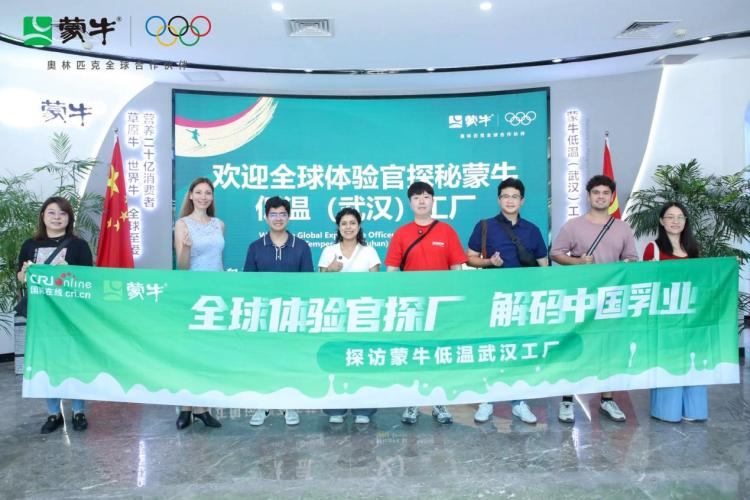
Launched in 2021, Mengniu's Wuhan Low-Temperature Dairy Plant is now the world’s largest and most advanced production base for low-temperature yogurt. Centered on “innovation, digital intelligence, flexibility, and sustainability,” the plant has built a fully integrated development model that traces every step “from a blade of grass to a cup of milk.”
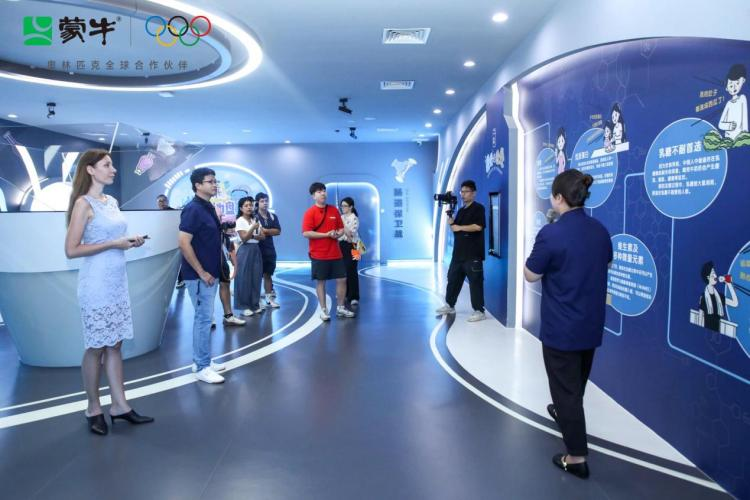
The Global Experience Officer delegation visits the Smart Operations Hall
Mengniu has established a “Probiotic Resource Bank” housing 18,000 strains—equivalent to a “strain bank” for the dairy industry—and has independently developed multiple patented strains. To date, the company has secured over 40 national patents, driving continuous innovation and healthier development across the dairy sector.
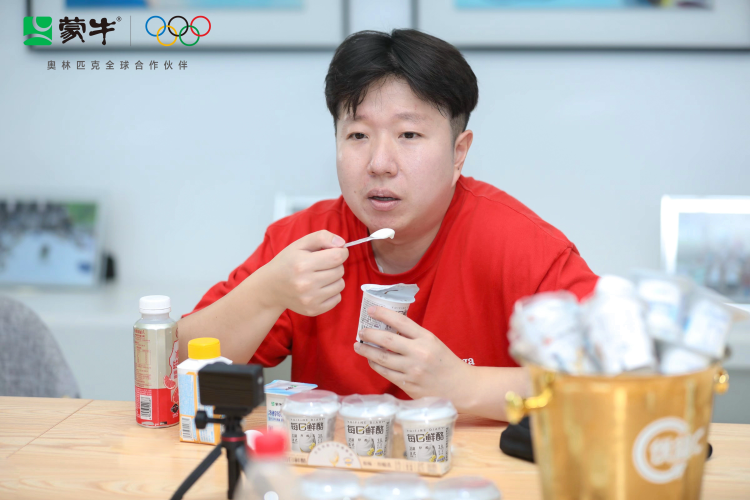
South Korean entrepreneur and blogger Kim Junbum tasting “Yo! Fine Diary” yogurt
“It’s silky and rich, with no graininess at all. Even after swallowing, the creamy aroma lingers. The live probiotics formula truly lives up to its reputation!” shared Thai video blogger Ake after tasting. Russian influencer and TED speaker Marina Barayeva also praised it: “Probiotics are the finishing touch in yogurt. They elevate the creamy texture while delivering real health benefits—a perfect fusion of science and taste.”
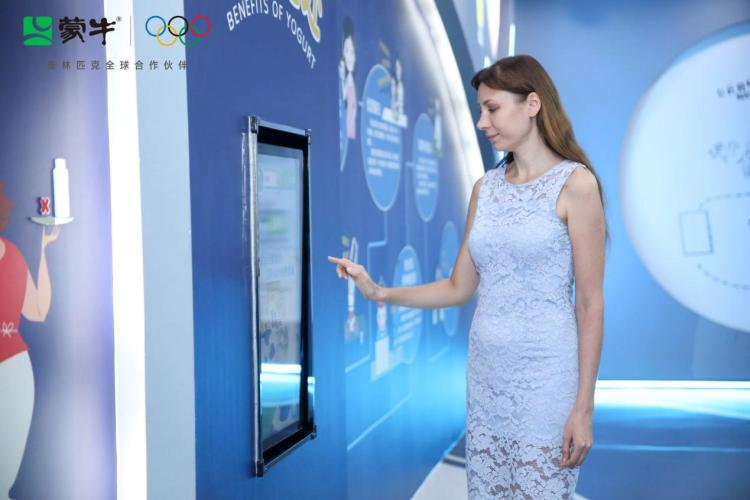
Russian blogger and TED speaker Marina Barayeva trying out a probiotic puzzle game
After leaving the Experience Hall, the delegation explored milk traceability to uncover the secret behind “a good cup of milk.” They learned how Mengniu’s six leaps in milk source management illustrate the evolution of China’s dairy industry.
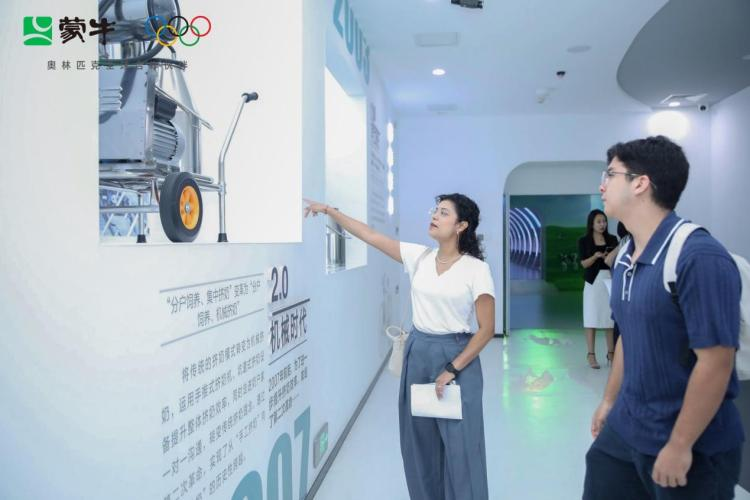
Wuhan University lecturer and international video blogger Celia observes a 2.0 era milking machine
“From relying on experience to relying on data, Mengniu has taken both animal welfare and milk quality to the highest level,” remarked Celia, a Wuhan University lecturer and video blogger, while visiting the mechanical milking system. “This end-to-end management model is truly impressive.”
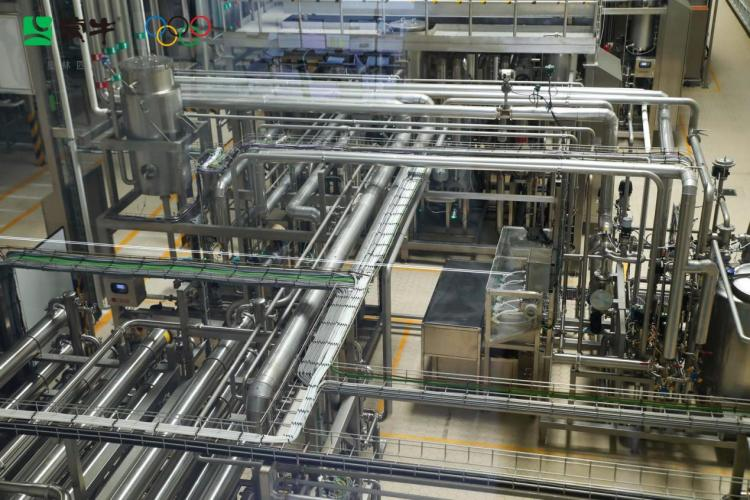
Yogurt production workshop at Mengniu's Wuhan Low-Temperature Dairy Plant
In the preprocessing workshop, pasteurization, culture addition, and fermentation are managed at the touch of a button from a central control room, with the entire process fully automated. In the filling workshop, one production line can flexibly switch between 5 to 20 different products, with automated equipment completing cup-size changes in under 10 minutes. During packaging, robotic arms precisely handle capping, spoon placement, and boxing, significantly improving efficiency and consistency. Meanwhile, the smart storage system connects warehousing, collection, and storage into a seamless digital network, ensuring fully automated inbound and outbound logistics.
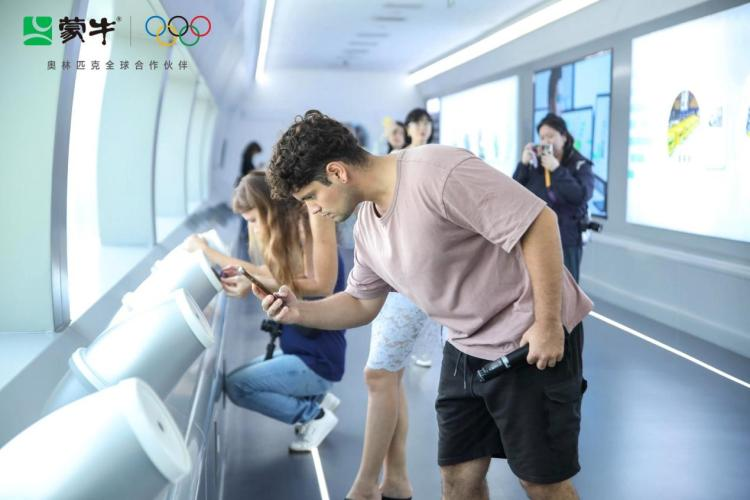
Brazilian video blogger and Tsinghua University industrial engineering student Meng Tailong observing live probiotics under a microscope
“As an engineering student, I’m amazed by the level of automation here,” said Brazilian influencer and Tsinghua industrial engineering student Meng Tailong. “The robotic arms complete capping and boxing with pinpoint accuracy, while human-machine collaboration runs smoothly and efficiently, greatly boosting productivity. What reassures me most is that full-process automation minimizes human intervention, ensuring cleanliness and product consistency.”
The group then visited the yogurt quality control lab, known as the plant’s “final safeguard.” Every batch of raw milk must undergo rigorous sampling and testing before being stored. The lab, jointly developed with Siemens, employs a digital management system that delivers fully automated results, drastically reducing human error and ensuring objective, accurate data.

Yogurt quality control lab
The secrets of yogurt were revealed. As Celia put it: “I hope more factories can become zero-carbon factories, and that every drop of milk will be eco-friendlier and safer.” Since its launch, Mengniu's Wuhan Low-Temperature Dairy Plant has embodied this vision—from vast pastures to intelligent factories, from patented probiotic strains to zero-carbon practices. Behind every cup of yogurt lies China’s dairy industry writing its answer to high-quality development: powered by innovation, and painted in green.
Copyright ©1997- by CRI Online All rights reserved